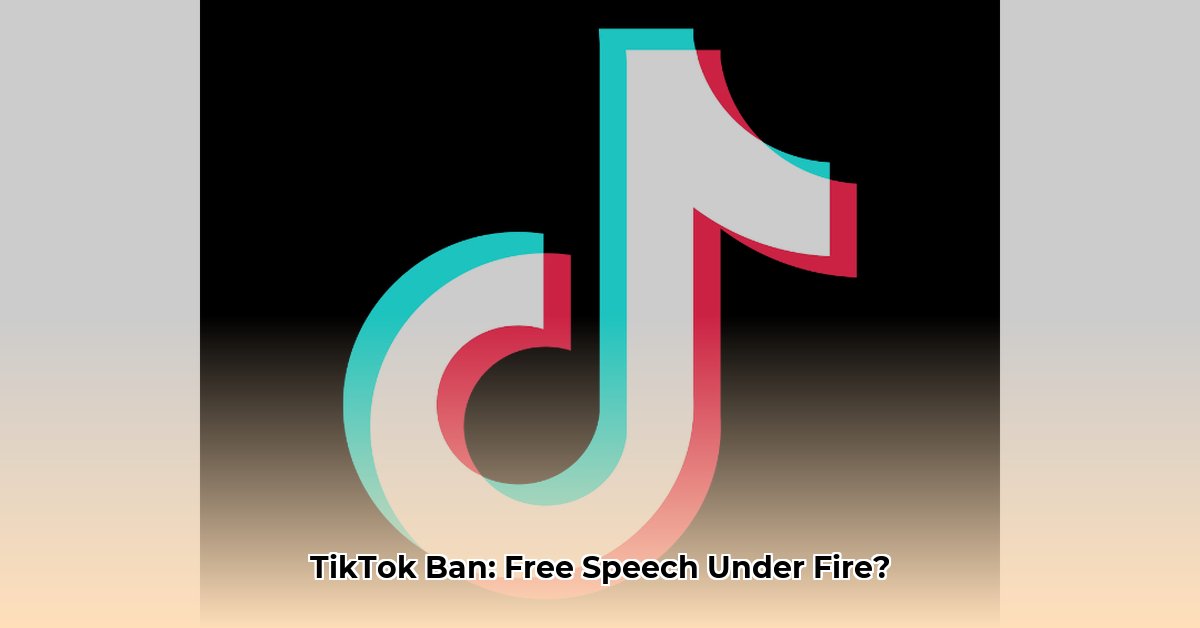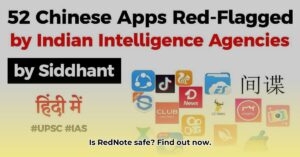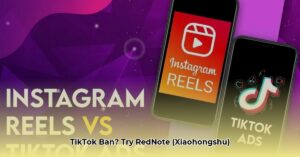Navigating the Threat vs. Trend Divide
The US government’s scrutiny of TikTok, stemming from concerns about its Chinese parent company ByteDance, has intensified. Officials worry about potential data vulnerability and Chinese government influence, citing national security risks. However, many view a potential ban as a blow to free speech, raising concerns about online freedoms and government overreach. This escalating debate begs the question: how do we balance national security with the right to online expression?
The Supreme Court Showdown: Security vs. Scrolling
In a hypothetical scenario set in January 2025, the Supreme Court grappled with the question of whether the government can compel the sale of TikTok to an American company. This hypothetical case highlights the clash between national security and freedom of expression, with the potential to reshape the digital landscape. A world where governments dictate app usage raises concerns about access to information and online connection.
The First Amendment and Your TikToks: A Complicated Relationship
The First Amendment protects freedom of speech. But does this extend to foreign-owned platforms like TikTok? Some argue national security outweighs free speech in this case, while others fear a TikTok ban could set a precedent for censoring other platforms, potentially ushering in an era of increased online censorship.
The Domino Effect: A Fragmented Internet?
A hypothetical Supreme Court decision on TikTok could ripple across the digital world. If the US bans TikTok, other countries might follow suit, potentially leading to a fragmented internet with varying access to information and online communities, drastically impacting free speech.
TikTok’s Uncertain Future: Waiting for the Verdict
TikTok’s fate hangs in the balance, awaiting a hypothetical Supreme Court decision. This case transcends a single app; it’s a battle for the future of the internet and online freedom. The decision will shape the digital world we inhabit – one of free expression or one controlled by governments.
Key Arguments at a Glance
| Key Arguments | Pro-Ban (National Security) | Anti-Ban (Free Speech) |
|---|---|---|
| User Data | TikTok’s data collection practices may risk sensitive information falling into the hands of the Chinese government. | Data collection is common across social media. A TikTok-specific ban appears discriminatory. |
| Foreign Influence | The Chinese government could potentially influence content on TikTok, possibly spreading propaganda or censoring dissenting views. | Evidence of direct Chinese government interference in TikTok content is limited. A ban could set a dangerous precedent for censoring foreign platforms. |
| National Security | TikTok’s popularity and reach make it a potential tool for espionage or foreign interference in US affairs. | National security concerns might be addressed through stricter data security and transparency, rather than a ban. |
| Free Speech | National security concerns may outweigh individual free speech rights in this case. | A TikTok ban potentially infringes upon users’ First Amendment rights to free expression and access to information. |
Note: This information is based on current reporting and analysis and is subject to change. Ongoing research and legal proceedings could significantly alter the situation.
The Digital Town Square Under Scrutiny
The internet functions as a modern town square for information sharing and connection. A TikTok ban is akin to roping off a section of this digital space. The government argues TikTok presents a national security risk due to potential data breaches and content manipulation. Critics contend the ban infringes on First Amendment rights, raising concerns about online censorship.
The Supreme Court’s Hypothetical Weigh-In
In our hypothetical scenario, the Supreme Court considered the tension between national security and free speech, evaluating whether potential risks posed by TikTok justify restricting online expression. Their decision hinges on weighing national security against fundamental freedoms.
The Ripple Effect: Reshaping the Digital Landscape
A hypothetical Supreme Court decision could reshape the digital landscape. Upholding a ban might empower the government to regulate online platforms more broadly. Striking down the ban could limit the government’s ability to address national security concerns online. The ruling would establish a precedent, shaping future perspectives on online speech and government regulation.
Potential Outcomes and Their Implications
| Scenario | Impact on Users | Impact on Government | Impact on Other Platforms |
|---|---|---|---|
| Supreme Court Upholds Ban | Loss of TikTok access; potential limitations on similar platforms | Increased authority to regulate online content based on national security concerns | Possibly increased scrutiny and regulation |
| Supreme Court Strikes Down Ban | Continued TikTok access; potentially greater online freedom | Limited ability to address perceived national security threats on social media | Less likely to face similar restrictions based solely on national security concerns |
| Partial Restrictions Implemented | Limited access to certain TikTok features or content; potential for future regulations | Moderate increase in regulatory power; continued balancing act with free speech | Potential for targeted regulations on specific features or content |
Addressing User Concerns
- What might happen to my TikTok account if there’s a ban? It’s unclear, but U.S. users would probably lose access.
- Are there other apps like TikTok? Yes, several platforms offer similar short-form video experiences.
- How can I make my voice heard on this issue? Contacting your elected officials is a good way to share your views.
The Future of Online Expression: An Ongoing Dialogue
The TikTok ban debate highlights the complex relationship between government and the online world. The Supreme Court’s hypothetical decision would impact online free speech. This ongoing conversation underscores the need to balance national security and free expression in the digital age. Ongoing research and legal challenges could further shape the future of online platforms.
Free Speech in the Digital Age: A Deeper Dive
The TikTok ban debate extends beyond a single app, raising fundamental questions about free speech in the digital realm.
National Security vs. Free Expression: A Tightrope Walk
The core issue is the conflict between national security and free speech. The US government argues TikTok poses a national security risk due to potential data sharing with the Chinese government and content manipulation. Critics argue the ban overreaches, limiting free expression and setting a dangerous precedent for online censorship.
The Human Cost: TikTok Creators’ Livelihoods
For many TikTok creators, the platform is their livelihood. A ban could end careers, sever connections with audiences, and disrupt creative outlets. The ban’s human impact deserves consideration.
The Legal Battlefield: Uncharted Territory
Legal experts are divided. Some support the ban due to national security concerns. Others argue it’s too broad, lacks evidence, and violates First Amendment principles. The courts must balance national security with free speech, and their decisions will reshape the digital landscape.
The Future of Online Speech: A Defining Moment
The TikTok ban debate represents a pivotal moment for online communication. It raises questions about government regulation of social media, the balance between security and freedom, and the nature of digital free speech. The debate’s implications extend beyond TikTok, affecting all users, creators, and the future of online expression.
The Impact on Creators and Users: A Closer Look
A TikTok ban would deeply impact creators and users. Creators could lose their livelihoods, audiences, and creative outlets. Users would lose a source of entertainment, information, and community. The ban’s impact on online discourse and social movements also needs consideration.
Creators: For many TikTok creators, the platform is more than an app; it’s a career. A ban would severely disrupt their income, creative flow, and community engagement. Rebuilding on other platforms presents significant challenges with no guarantee of success.
Users: Users would lose access to entertainment, information, and community. TikTok’s role in online discourse and social movements raises concerns about the potential impact of a ban on information dissemination and mobilization efforts.
Legal Implications: The ban’s legality is complex. It raises First Amendment concerns and potential censorship issues. The government defends the ban as a necessary national security measure, while TikTok argues it’s targeted censorship. This legal battle will set a precedent for online speech and platform regulation.
National Security Concerns: A Deeper Examination
The core national security concern is the potential access of the Chinese government to TikTok user data, including personal details, browsing habits, and private messages. This data could be misused for tracking, profiling, or espionage. China’s national security laws, which allow the government to request data from companies, exacerbate these concerns.
Potential Consequences: If this data were compromised, it could be used for influencing public opinion, disinformation campaigns, or identifying vulnerabilities in US infrastructure. Some experts suggest it could even be used to track government officials or military personnel.
TikTok’s Counterarguments: TikTok insists it has not and will not share data with the Chinese government, emphasizing its data security measures. They argue these concerns are hypothetical and prioritize user privacy.
The First Amendment Dilemma: A complete ban raises First Amendment concerns about free speech and access to information. The legal challenge centers on balancing national security with individual liberties.
The Path Ahead: This debate highlights the evolving intersection of technology, freedom of expression, and government oversight. Ongoing research and legal challenges will shape how we navigate these complex issues in the digital age.







